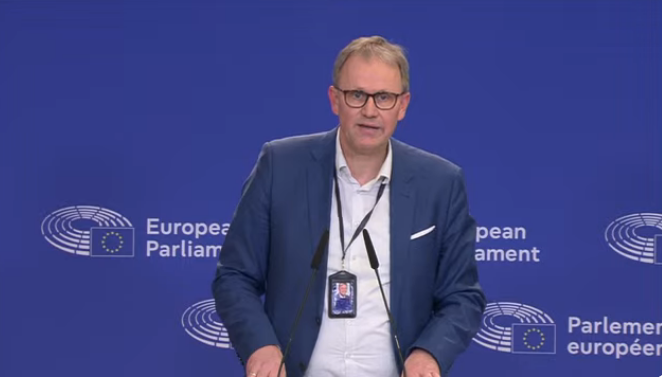Brussels – Automotive: forward with the sustainable revolution but in moderation. The People’s Party (EPP) is challenging Ursula von der Leyen, also of the EPP, calling for a change of Green Deal course for the automobile. The main parliamentary group (188 seats out of 720) approves a document aimed, it is explained, at saving the European auto industry. A six-page text that, if it does not reject the conduct of the previous EU Commission, certainly casts doubt on its effectiveness. There are two main elements: the call for a more gradual transition to electric (current regulations call for a stop to the production of combustion engines in 2035) and the inclusion of all useful CO2-cutting technologies, including bio-fuels, on which Italy and the Meloni government had insisted so much, to power the cars that will be produced in the future.
“A review of the targets is needed,” and the market for internal combustion engines should be “maintained,” stresses Jens Gieseke, a member of the European Parliament’s Transport Committee and the EPP’s automotive negotiator. “Different technologies are needed, such as e-fuel, but other technologies that reduce emissions can and should be considered, he adds. This is the bio-fuel opening called for by Italy in the not-so-easy negotiation to stop the conventional engine.

For now, Gieseke emphasized at the press conference convened for the occasion, what has been drafted “is an EPP document” addressed to von der Leyen’s new European Commission, with the hope that “not in the first 100 days, but as soon as possible” the appropriate changes will be made on the regulation to stop the traditional engine for cars and vans. More pressure on the college of commissioners is wanted, with the support of the other groups. The EPP member makes no secret of the fact that he would like to see “a realistic approach between liberals (Re) and socialists (S&D), and partly also between conservatives (ECR) and the group of the Left,” in a bipartisan convergence and support for the initiative of the popular.
Speaking of alliances, the move by the EPP may produce as a direct consequence an enlargement to sovereignist forces, given the demands for backward steps from the Lega leader, which sits in the Patriots for Europe group. It will be seen, if and when the time comes, to rework a regulatory framework that it is deemed necessary, within the ranks of the majority party in Europe, to change. Starting with sanctions.
The EPP wants to prevent the imposition of fines from 2025 on automakers that produce few electric cars, and there is a specific call to eliminate penalties. “We have to allow the industry to survive,” Gieseke insists. “It is not a good idea to impose fines at a time when demand is low. The elephant in the room is that the consumer does not see the benefits of the transition, for example, in the availability of infrastructure,” i.e., charging points. Finally, a stop to the idea of incentives for the sector: “This is not about inventing new subsidy schemes, but revising the regulatory framework to allow the sector to survive.”
English version by the Translation Service of Withub

![Il ministro dei Trasporti, Matteo Salvini [Bruxelles, 5 dicembre 2024. Foto: Emanuele Bonini per Eunews]](https://www.eunews.it/wp-content/uploads/2024/12/salvini241205-350x250.jpeg)





